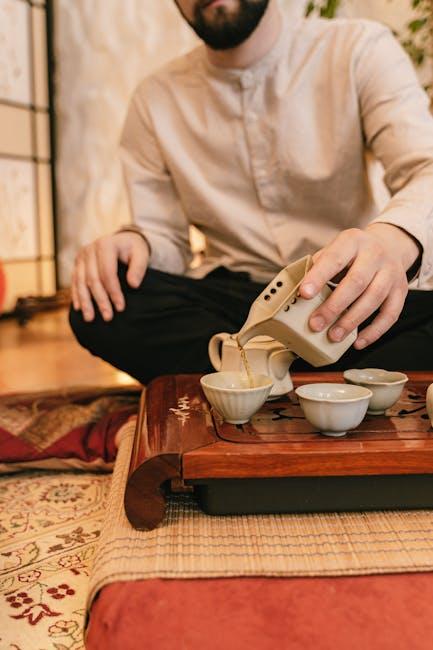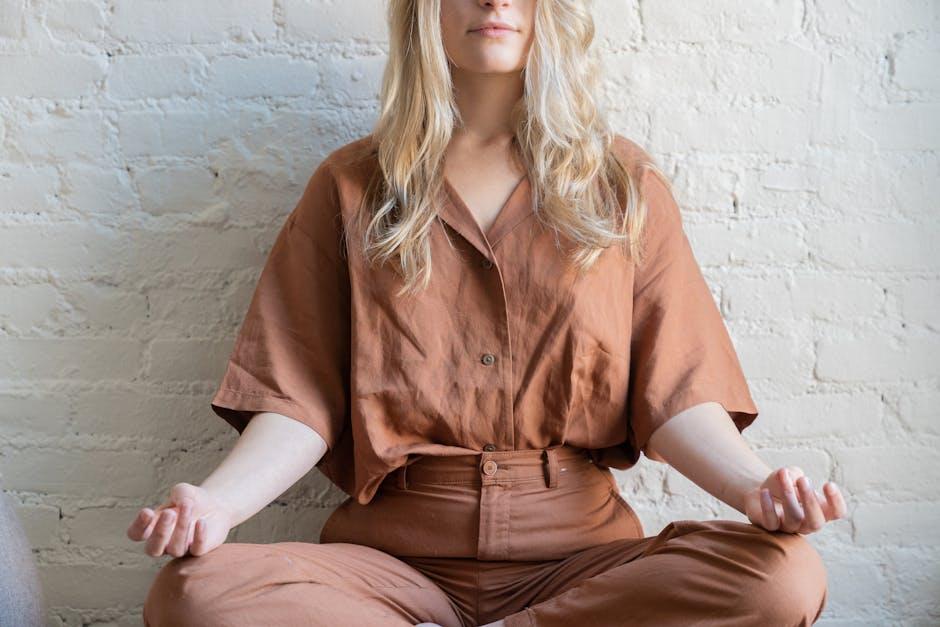In the bustling tapestry of modern life, where the cacophony of notifications, deadlines, and endless to-do lists reign supreme, the ancient practice of meditation emerges as a whisper of serenity. Touted as a panacea for the stresses of contemporary existence, meditation promises a sanctuary for the mind, a refuge where clarity and calm prevail. But as this age-old practice finds its place in boardrooms, classrooms, and living rooms alike, a pressing question arises: Is meditation truly as beneficial as its advocates claim? This article delves into the depths of this contemplative practice, exploring its roots, unraveling scientific studies, and examining personal anecdotes to discern whether meditation’s reputation as a transformative tool is grounded in reality or merely woven from myth. Join us as we embark on a journey to uncover the truths and tales surrounding meditation’s place in our lives.
Exploring the Science Behind Meditations Promises
In recent years, meditation has transitioned from a niche practice to a mainstream wellness trend, with many advocates touting its numerous benefits. But what does science say about these claims? Studies suggest that regular meditation may indeed lead to various mental and physical health benefits. For instance, research has shown that meditation can reduce stress levels by lowering cortisol, the stress hormone, which may lead to a more relaxed state of mind. Furthermore, neuroscientific studies indicate that meditation can increase the density of gray matter in the brain, potentially enhancing areas related to memory, learning, and emotional regulation.
Beyond the brain, meditation’s influence seems to extend to the body as well. Potential benefits include:
- Improved immune system functioning
- Enhanced focus and concentration
- Reduced symptoms of anxiety and depression
- Lower blood pressure
While these findings are promising, it’s important to remember that meditation is not a cure-all. The effectiveness of meditation can vary from person to person, and more research is needed to fully understand its impact. However, the current evidence suggests that incorporating meditation into your routine could be a valuable addition to a holistic approach to well-being.

Unveiling the Mental Health Benefits of Mindfulness Practices
In the hustle and bustle of modern life, the practice of mindfulness has emerged as a beacon of calm, offering a sanctuary for the mind amidst chaos. This ancient art, often associated with meditation, is increasingly recognized for its profound impact on mental health. Research highlights that mindfulness practices can significantly reduce symptoms of anxiety and depression. By focusing on the present moment and acknowledging thoughts and feelings without judgment, individuals can foster a deeper understanding of their mental processes.
- Enhanced Emotional Regulation: Regular mindfulness practice aids in managing emotional responses, promoting a more balanced mood.
- Improved Concentration: By training the mind to focus, mindfulness enhances attention and reduces distractions.
- Stress Reduction: Mindfulness lowers cortisol levels, the stress hormone, creating a sense of peace and relaxation.
These benefits collectively contribute to a healthier mental state, proving that the claims surrounding meditation are not mere exaggerations. As we delve deeper into the science behind mindfulness, its role in mental well-being becomes undeniably compelling.
 Meditation Techniques for Everyday Calm”>
Meditation Techniques for Everyday Calm”>
Balancing Stress: Meditation Techniques for Everyday Calm
Finding inner peace in the hustle and bustle of daily life can seem like a daunting task, yet many turn to meditation as a sanctuary of tranquility. This ancient practice offers various techniques, each tailored to suit different needs and lifestyles. Whether you’re a busy professional or a parent juggling countless responsibilities, integrating meditation into your routine can be both accessible and transformative.
- Mindfulness Meditation: Focus on the present moment by observing your thoughts and feelings without judgment. This technique encourages a heightened state of awareness and acceptance.
- Guided Visualization: Harness the power of your imagination to transport yourself to a serene environment, reducing stress and enhancing relaxation.
- Breath Awareness: Pay attention to your breathing patterns, promoting calmness and reducing anxiety by anchoring your mind to the rhythm of your breath.
- Body Scan: Systematically focus on different parts of your body, releasing tension and fostering a sense of physical and mental harmony.
By exploring these techniques, you can cultivate a personal meditation practice that helps you navigate stress with grace and ease, ultimately leading to a more balanced and calm life.

Guidelines for Integrating Meditation into Daily Life
Integrating meditation into your daily routine can be a transformative journey, yet it requires thoughtful planning and commitment. Here are some key strategies to help seamlessly weave this practice into the fabric of your everyday life:
- Start Small: Dedicate just a few minutes each day to meditation. This approach minimizes pressure and builds a sustainable habit over time.
- Create a Dedicated Space: Establish a peaceful corner in your home that is free from distractions. This will become your sanctuary, enhancing your focus and relaxation.
- Consistency is Key: Choose a specific time each day for meditation, such as morning or before bedtime. Regularity reinforces the habit and allows your mind to anticipate this calming ritual.
- Mindful Integration: Incorporate brief moments of mindfulness throughout your day, such as focusing on your breath while waiting in line or during a walk, to enhance awareness and presence.
- Embrace Flexibility: Life is unpredictable. Allow yourself to adapt your meditation practice to suit your daily needs without guilt or rigidity.
Closing Remarks
As we draw the curtain on our exploration of meditation’s touted benefits, we find ourselves at the crossroads of ancient wisdom and modern inquiry. The journey through the realm of mindfulness and serenity reveals a landscape rich with personal testimonies and emerging scientific insights. While the scales of evidence continue to tip and balance, one truth remains steadfast: the pursuit of inner peace is as personal as the breath we take. Whether you find solace on a cushion or clarity in a quiet moment, the quest for well-being is uniquely yours to navigate. As the sun sets on this discourse, may you carry forward a spirit of curiosity and openness, allowing your own experience to guide the narrative of meditation’s role in your life.


































